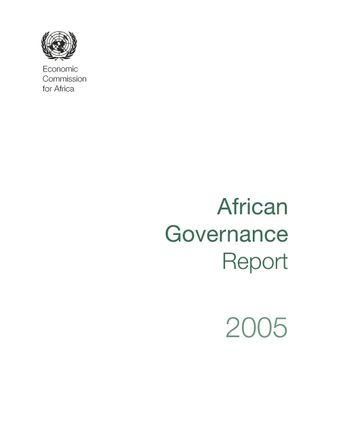Institutional checks and balances

- Author: United Nations
- Main Title: African Governance Report I - 2005 , pp 115-136
- Publication Date: October 2006
- DOI: https://doi.org/10.18356/9176c1b9-en
- Language: English
In Africa the executive has historically been the most powerful institution of governance. The tendency of the executive to monopolize power and abuse discretionary authority has been universally observed throughout the ages. And in various manifestations and degrees, so have the other institutions of governance. There are several reasons why the executive tends to monopolize power and discretionary authority. The executive initiates and enacts laws, rules and regulations, and ensures their compliance. It controls administration of the country, and with the support of the civil service is the main provider of the public goods and services, including security and defense, and ensures law and order. It formulates and implements national policies; and it controls major material and financial resources, mobilising people and providing employment. Clearly the executive has tremendous powers and discretionary authority at its disposal.
-
From This Site
/content/books/9789211555622c013dcterms_title,dcterms_subject,pub_keyword-contentType:Journal -contentType:Contributor -contentType:Concept -contentType:Institution105

